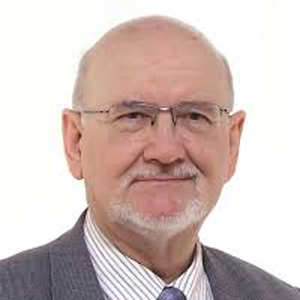IEEE Montreal Keynote Event: Towards New Personalized Education Involving Digital Twins

IEEE Montreal Keynote Event: Towards New Personalized Education Involving Digital Twins
This talk deals with the need for a new educational system to match the exponential growth of new knowledge, as well as the disruptive change in the job market and the concept of a job itself.
We have been using the Prussian classroom since 1770 after the first industrial revolution. The revolution accelerated the demand for new replaceable workers on assembly lines and in maintenance. A body of knowledge (BoK) was first developed to fit all students in their education. This one-fits-all (1FA) model of education is still being used in our educational curricula.
Although this 1FA model has been improving due to successive industrial revolutions, continuous developments in computing, machine learning and automation have introduced new and even unexpected conditions. Jobs that require repetitious operations have already been taken over by robots. More complicated jobs like driving vehicles are being replaced by self-driving machines. Jobs dedicated to data analytics are being taken over by new classes of computing. As a result, one job for a lifetime is becoming more of a dream. In fact, many young professionals (YP) will have three to ten jobs in their lifetimes.
In the past, knowledge doubling occurred over several lifetimes, but is now doubling in few years or even months. Thus, teaching one curriculum to be used in a single lifetime is no longer appropriate.
How can the educational system change from the old one-fits-all to an agile one-fits-one (1F1) approach? The system will have to be personalized, adaptive predictive, and continuous in order to match the diversity of individual abilities, styles of learning, and the current gaps in knowledge. It should be implemented with new concepts and tools. We envisage that the new personalized system of education should be sufficiently agile and interactive so that it could be evolving in its symbiosis with humans. For that to happen, we must coexist with symbiotic autonomous cognitive systems, specifically involving digital twins [Kins019], [DKFK018]. Schools, colleges and universities will have to change fundamentally. Some of the changes are already happening, others are developing.
For example, the role of experience in education has been growing in importance. The final-year capstone projects have been in place for a number of years now. Experiential learning is being developed at different levels. However, the experience of seasoned professionals (SP) is not transferred to the educational system yet. This body of experience (BoX) should augment the BoK, and be used in closing the educational loop.
Another fundamental advancement must occur in the outreach to the next generation of scientists, technologists, engineers, artists, and mathematicians (STEAM) in high-schools, primary schools and pre-schools. This outreach must also evolve from direct contacts with students to indirect impact through teachers.
This talk also presents one of such tools: teaching teachers how to develop, implement, and test a tiny smart robot. This example focuses on how to teach the concepts, while enjoying the experiential learning.
References
[Kins019] Witold Kinsner, "Towards evolving symbiotic education based on digital twins," Mondo Digitale, vol. 80, Feb 2019, 14 pages.
http://mondodigitale.aicanet.net/2019-1/articoli/11_MD80_Towards_Evolving_Symbiotic_Education_Based_on_Digital_Twins%20.pdf
http://mondodigitale.aicanet.net/ultimo/index.xml
[DKFK018] S. Mason Dambrot, Derrick de Kerchove, Francesco Flammini, Witold Kinsner, Linda MacDonald Glenn, Roberto Saracco, Symbiotic Autonomous Systems White Paper II. IEEE Future Directions, October 2018, 227 pages.
https://symbiotic-autonomous-systems.ieee.org/white-paper/white-paper-ii
Date and Time
Location
Hosts
Registration
-
 Add Event to Calendar
Add Event to Calendar
- Concordia University
- 1610 Ste. Catherine West
- Montreal, Quebec
- Canada H3H 1L9
- Building: Faubourg Building
- Room Number: FGC080
Speakers
 KEYNOTE SPEAKER
KEYNOTE SPEAKER
Witold Kinsner
Past IEEE Canada President
Professor, Dept. of Electrical & Computer Engineering, University of Manitoba
Biography:
Witold Kinsner is Professor in the Department of Electrical and Computer Engineering, University of Manitoba (UofM), Winnipeg, Canada, and Director of the Cognitive Systems Group. He was a co-founder of the first Microelectronics Centre in Canada, and was its Director of Research from 1979 to 1987. He is a Co-founding Member of the International Institute of Cognitive Informatics and Cognitive Computing (ICIC), Calgary, and the Canadian Engineering Education Association (CEEA). Since 1971, he has been very active at all the IEEE levels, including IEEE International, Region 7 (IEEE Canada), Society, Council, Section, Chapter, and Student Branch. He has organized many conferences, and has been on numerous editorial boards of journals and magazines. He is a member of 10 IEEE Societies and many committees. In 2013, Dr Kinsner was elected IEEE Canada President Elect 2014-15 and IEEE R7 Director/Delegate Elect 2014-15. He was IEEE Canada President 2016-17 and IEEE R7 Director/Delegate 2016-17, and he is now Past President 2018-2019. In 2017, he was elected IEEE Vice President of the IEEE Educational Activities for 2018 and was re-elected for 2019.
His current research focuses on entropy-based mono-scale, multi-scale, and poly-scale complexity metrics for cognitive systems. He has been involved in research on robust algorithms and software/hardware computing engines for real-time multimedia, using wavelets, fractals, chaos, emergent computation, genetic algorithms, rough sets, fuzzy logic, higher-order statistics, neural networks, and deep learning. He has authored and coauthored over 780 publications in the above research areas, as well as supervised over 76 Master’s and Doctorate graduate students, over 210 undergraduate final-year thesis/capstone project students, and mentored over 35 summer research students. He has received a number of awards. Since 2010, he has been the University Advisor for the Canadian Satellite Design Challenge (CSDC) University of Manitoba team consisting of over 100 students from 16 departments and 50 advisors from the academic, aerospace, industrial, business, and military sectors. In 2018, the fourth implementation of the University of Manitoba Space Applications and Technology Society (UMSATS)s satellite, TSat4, has won the CSDC competition.
Agenda
6:00-7:00 Refreshments and introductions
7:00-9:00 Prof. Kinsner talk and Q&A
Note: There is parking at 1230 Guy at a cost of $9 for the evening.

